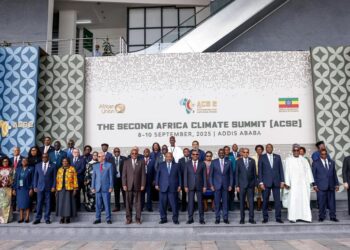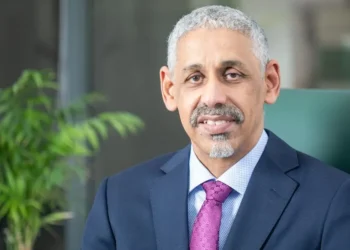Key highlights
- Dr. Akinwumi Adesina is advocating for support from Germany for Africa’ energy transition. During his presentation, he highlighted Africa’s need to increase electricity access.
- Despite these challenges, Dr. Adesina believes that Africa has the potential to have universal access if some conditions are met.
- Africa’s energy transition will cost an estimated $100 billion annually between 2020 and 2040.
Dr. Akinwumi Adesina, the president of the African Development Bank (AfDB), has said that Africa’s energy transition will cost an estimated $100 billion annually between 2020 and 2040. He stated this during his keynote speech at the Berlin Energy Transition Dialogue which was held from March 27 to March 30.
According to Dr. Adesina, Africa accounts for 6% of global energy use and 3% of global electricity demand and is completely energy poor but has made important progress in terms of access to electricity, stating that the population with electricity access has increased from 44% to 56% between 2010 and 2020. He said:
“Despite the progress, close to 600 million people do not have access to electricity, and about a billion Africans lack access to clean cooking energy. To meet SDG 7 goals, Africa needs to connect 90 million people annually to electricity in the next eight years and shift 130 million people from dirty cooking fuels every year. Africa’s energy transition is a huge task and will cost an estimated $100 billion annually between 2020 and 2040.”
Dr. Adesina maintained that universal access to electricity is possible in Africa, if the continent harnesses its massive potential in renewable energy sources.
The declining costs of solar and wind energy technologies, coupled with more affordable energy storage systems makes renewables cost competitive and presents a unique opportunity for Africa to underpin its future energy needs based on renewables.
The $10 billion plan: According to Dr. Adesina, the AfDB is driving investments in renewable energy technologies but has since stopped funding coal-based projects on the continent. He however made a case for natural gas exploration and production on the continent, stating that estimates show that if Sub-Saharan Africa (with the exclusion of South Africa) were to triple all its electricity consumption overnight using only natural gas, the additional carbon dioxide would only constitute 0.6% to global emissions.
So, shifting from firewood, charcoal, and kerosene to the use of liquified petroleum gas for cooking will lower emissions and improve lives across board. He said:
- “To spur this development, as well as drive the growth of green infrastructure in Africa, the African Development Bank, Africa50 and the African Union have launched the Alliance for Green Infrastructure in Africa (AGIA). AGIA targets to raise $10 billion to accelerate Africa’s just and equitable transition to net zero emissions. I look forward to Germany’s support for AGIA.
- “The AfDB is investing in clean cooking technologies that lower emissions. Our investment in the SPARK + Africa Fund supports development and distribution of clean cooking energy solutions, including biomass stoves, advanced biomass fuels, liquified petroleum gas (LPG), ethanol and biogas systems. It will deliver clean cooking solutions for about 2 million households and reduce around 16 million tons of CO2 equivalent of carbon emissions.”
What you should know: In 2022, at least 600 million people did not have access to electricity, and 970 million lacked access to clean energy for cooking.






















